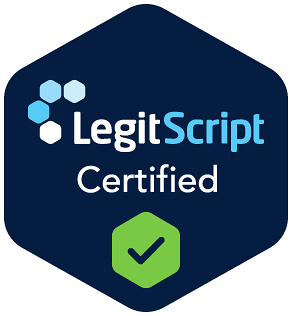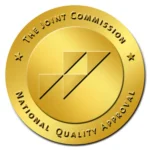Personality Disorder Treatment
in Oceanside California
Oceanside Recovery Centers and Mental Health provides men’s only personality disorder treatment in San Digeo.
Welcome to Oceanside Mental Health, a premier facility dedicated to the treatment of personality disorders specifically for men, located in the heart of Oceanside, California. Our mission is to provide effective, individualized care in a supportive environment that addresses not only the symptoms but also the root causes of personality disorders. We understand the unique pressures and challenges faced by men in modern society, and our programs are designed to equip our clients with the tools they need for lasting change and a better quality of life.
Understanding Personality Disorders
What Are Personality Disorders?
Personality disorders are complex mental health conditions characterized by patterned behaviors and experiences that deviate significantly from societal expectations and are pervasive and inflexible. Studies have shown that over 9% of adults suffer from a personality disorder. Personality disorders often manifest in two or more of the following areas: cognition, affectivity, interpersonal functioning, or impulse control. The onset of these patterns can typically be traced back to adolescence or early adulthood and can lead to significant impairments or distress.
Common Types of Personality Disorders
The DSM-5 categorizes personality disorders into three clusters based on descriptive similarities:
- Cluster A Personality Disorders (Odd or Eccentric Disorders): This cluster includes disorders like Paranoid Personality Disorder, where individuals may be excessively distrustful and suspicious; Schizoid Personality Disorder, characterized by a lack of interest in social relationships, and Schizotypal Personality Disorder, marked by eccentric behavior and distorted thinking.
- Cluster B Personality Disorders (Dramatic, Emotional, or Erratic Disorders): This group includes Antisocial Personality Disorder, noted for a disregard for and violation of the rights of others; Borderline Personality Disorder, characterized by emotional instability and intense interpersonal relationships; Histrionic Personality Disorder, where there is a pattern of excessive emotionality and attention seeking; Narcissistic Personality Disorder, marked by grandiosity, a need for admiration, and a lack of empathy. While not classified as a personality disorder, bipolar disorder is often discussed alongside Cluster B due to its mood instability component, which can mimic or exacerbate Cluster B personality disorder symptoms.
- Cluster C Personality Disorders (Anxious or Fearful Disorders): This cluster includes Avoidant Personality Disorder, where individuals display a pattern of social inhibition, feelings of inadequacy, and hypersensitivity to negative evaluation; Dependent Personality Disorder, characterized by a pervasive psychological dependence on other people; and Obsessive-Compulsive Personality Disorder, involving a preoccupation with orderliness, perfectionism, and control.
How Are Personality Disorders Diagnosed?
Diagnosing personality disorders is a complex process that requires a thorough assessment by qualified mental health professionals. At Oceanside Mental Health, our approach to diagnosing these disorders involves several steps, integrating clinical interviews, standardized diagnostic tools, and comprehensive observations over time.
Clinical Interviews
The primary method for diagnosing personality disorders is through detailed clinical interviews that provide deep insights into an individual’s history and current functioning. These interviews are designed to explore the client’s emotional background, interpersonal relationships, patterns of behavior, and self-perception. Mental health professionals at our facility use these interviews to gather essential information about symptoms, life circumstances, and personal experiences that might indicate the presence of a personality disorder.
Standardized Diagnostic Tools
In addition to clinical interviews, standardized diagnostic tools and questionnaires are often utilized to assess personality disorders more systematically. These tools are based on the criteria outlined in the Diagnostic and Statistical Manual of Mental Disorders (DSM-5), which defines specific criteria for each personality disorder. Tools such as the Minnesota Multiphasic Personality Inventory (MMPI) or the Millon Clinical Multiaxial Inventory (MCMI) provide valuable quantitative data that support the diagnostic impressions from clinical interviews.
Observational Assessments
Observational assessments involve monitoring the client’s behavior and interactions in various contexts. These observations can be especially informative, as they provide real-time insights into how an individual manages emotions, responds to stress, and relates to others. In clinical settings, mental health professionals may observe interactions during therapy sessions or group activities, while additional information might be gathered from family members, partners, or colleagues to understand better the individual’s behavior in different environments.
Consideration of Co-occurring Conditions
It is crucial to assess and consider co-occurring mental health conditions, such as depression, anxiety disorders, or substance abuse, which can complicate the diagnosis of personality disorders. These conditions may mask or exacerbate the symptoms of a personality disorder, so distinguishing between them is essential for an accurate diagnosis and effective treatment plan.
Collaborative Approach
At Oceanside Mental Health, the diagnostic process is collaborative and involves a multidisciplinary team of psychiatrists, psychologists, and other mental health professionals. This team approach ensures that multiple perspectives are considered, contributing to a more comprehensive understanding of the individual’s mental health.
Follow-Up Assessments
Personality disorders are characterized by patterns of behavior that are persistent and pervasive. Therefore, follow-up assessments are critical to ensure the accuracy of the diagnosis. Re-evaluating the client over time provides the opportunity to observe the consistency of personality traits and behaviors, which is necessary for confirming the diagnosis according to the longitudinal and enduring criteria specified for personality disorders.
Our Treatment Approach
At Oceanside Mental Health, we are committed to providing a comprehensive and dynamic treatment approach for personality disorders, which integrates the latest research and clinical practices to offer the most effective strategies for our clients. Understanding that each individual’s experience with a personality disorder is unique, our treatment plans are highly personalized and involve a combination of psychotherapy, medication management, group therapy, and holistic interventions.
Psychotherapy Techniques
Psychotherapy is the cornerstone of our treatment approach, as it offers deep insights into emotional issues and helps to initiate the change in thought and behavior patterns that are necessary for recovery. Our psychotherapists utilize a variety of evidence-based techniques tailored to address the specific challenges associated with each type of personality disorder.
- Cognitive Behavioral Therapy (CBT): CBT is particularly effective in helping clients recognize and alter dysfunctional thought patterns that contribute to maladaptive behaviors. By focusing on the thoughts, beliefs, and attitudes that underpin their daily actions, clients can begin to make substantial changes in the way they perceive and interact with the world.
- Dialectical Behavior Therapy (DBT): This therapy is crucial for clients who experience intense emotions and struggle with interpersonal relationships. DBT helps in teaching skills to manage stress, enhance emotional regulation, and improve relationships through a more mindful approach to interacting with others and managing one’s feelings.
Medication Management
While psychotherapy addresses the psychological aspects of personality disorders, medication can be essential in managing the biological and neurological components. Medications are not a standalone treatment for personality disorders, but they can help control symptoms that might interfere with therapy, such as anxiety, depression, or impulsivity. Our psychiatrists provide careful monitoring and adjustment of medications to optimize their efficacy and minimize side effects.
Group Therapy Sessions
Group therapy offers a unique environment in which clients can gain insights through interaction with others who face similar challenges. These sessions are facilitated by experienced therapists who guide the discussion in a way that promotes healing and growth. Clients benefit from the collective experience of the group, which helps them feel less isolated and more understood.
- Skills Training Groups: These focus on teaching specific skills such as emotional regulation, distress tolerance, interpersonal effectiveness, and mindfulness, which are critical for clients with personality disorders.
- Process-Oriented Groups: In these groups, members discuss personal experiences and issues within the safety of a therapeutic setting, providing support and receiving feedback from peers
Holistic Interventions
Understanding that recovery involves the whole person, our treatment approach also includes holistic interventions such as yoga, meditation, art therapy, and nutritional counseling. These practices help to improve mental health by reducing stress, enhancing self-awareness, and promoting a greater sense of peace and well-being.
Specialty Programs for Men
Recognizing the unique challenges that men face in dealing with personality disorders, Oceanside Mental Health offers specialty programs that cater specifically to men. These programs focus on issues like emotional expression, aggression management, and the development of healthy masculine identities, helping our clients navigate their paths to recovery in a supportive, male-focused environment.
Why Choose Oceanside Mental Health?
Choosing our facility means entrusting your care to a team of professionals who are committed to understanding and meeting your unique needs. Our staff includes experienced psychologists, psychiatrists, and therapists who are leaders in the field of personality disorder treatment. We prioritize creating a respectful, confidential, and non-judgmental space where our clients can truly thrive.
What to Expect During Your Treatment
The treatment process at Oceanside Mental Health begins with a thorough diagnostic assessment to understand the specific needs and challenges of each client. Following this, a personalized treatment plan is crafted, encompassing a combination of individual therapy, group sessions, medication management, and holistic therapies designed to promote overall wellness.
Supporting Your Journey Beyond Treatment
Our commitment to our clients extends beyond the immediate treatment phase. Oceanside Mental Health provides ongoing support and resources to help our clients maintain their mental health and integrate the skills they have learned into everyday life. This includes alumni groups, outpatient services, and access to community resources.
Begin Your Healing Journey at Oceanside Mental Health
At Oceanside Mental Health, we offer a path to recovery that is grounded in understanding, innovation, and compassion. Our specialized approach to personality disorder treatment for men ensures that you or your loved one will receive the highest level of care tailored to your unique needs. Join us on your journey to recovery and regain control over your life with the support of our dedicated professionals. If you or a loved one are struggling with a mood disorder or another type of mental health condition, get in touch with Oceanside Mental Health to learn about the treatment options we offer.
Frequently Asked Questions

Dr. Anna Pollard (PSY35428) is a licensed clinical psychologist and the Clinical Director at Oceanside Mental Health where she oversees the clinical operations, ensuring the highest standards of care for clients and mentoring a multidisciplinary team of mental health professionals. She earned her PhD in Clinical Psychology with a health emphasis from the California School of Professional Psychology, an APA-accredited program.

